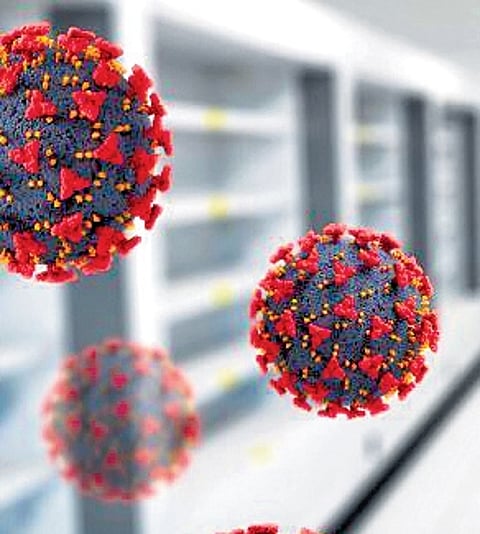

HYDERABAD: Amid growing concerns and misconceptions about a potential outbreak of Human Metapneumovirus (HMPV), doctors emphasise the need for vigilance and a reality check to avoid falling prey to false information.
HMPV, like Influenza and Respiratory Syncytial Virus (RSV), typically causes symptoms such as cold, cough, fever, and, in severe cases, upper or lower respiratory tract infections, including pneumonia. However, the virus is less virulent than swine flu or Covid-SARS and has a low mortality rate.
Dr Kiran Madhala, professor of critical care medicine at Gandhi Medical College, explained, “HMPV is a single-stranded, negative-sense RNA virus classified within the Pneumoviridae family. It has two subtypes, A and B, with A2c and B2 genotypes being the most common globally until 2022.”
A 2018 global report attributed 11 million cases to HMPV, with a 5% hospitalization rate and approximately 1% fatality rate. Children aged 1 to 4 are most vulnerable to this infection.
Dr Madhala noted, “HMPV shows a lower prevalence of fever and cough but higher chances of pneumonia compared to Covid-19 and RSV. The current cases in China are likely linked to the A2b genotype, which is less severe than the previously dominant A2c. The Covid-19 pandemic may have increased susceptibility due to weaker maternal antibodies, reduced exposure, and larger pools of susceptible individuals.”
Dr Satish C Reddy, consultant pulmonologist at CARE Hospitals, clarified that HMPV is not a new virus and behaves like other respiratory viruses, particularly during winter. “Most infections are mild, with higher risks for young children, the elderly, and individuals with weakened immune systems. Severe cases are rare and usually occur in patients with pre-existing conditions,” he said.
Diagnostic tests for HMPV are typically included in routine RT-PCR or multiplex PCR panels for respiratory viruses. Unlike post-Covid infections, HMPV does not lead to severe post-infection complications.
Dr Reddy stressed the importance of preventive measures, especially for children, who are more vulnerable. “Schools and parents should take extra precautions over the next month. While there is no approved vaccine for HMPV, following Covid-like protocols—wearing masks, washing hands, avoiding crowded places, and staying hydrated—can prevent its spread,” he advised.
Do’s:
Cover your mouth and nose when coughing or sneezing
Wash hands regularly
Avoid crowded places
Drink plenty of water and consume nutritious food
Ensure adequate ventilation
Get enough sleep
Don’ts:
Avoid self-medication
Do not panic over common symptoms